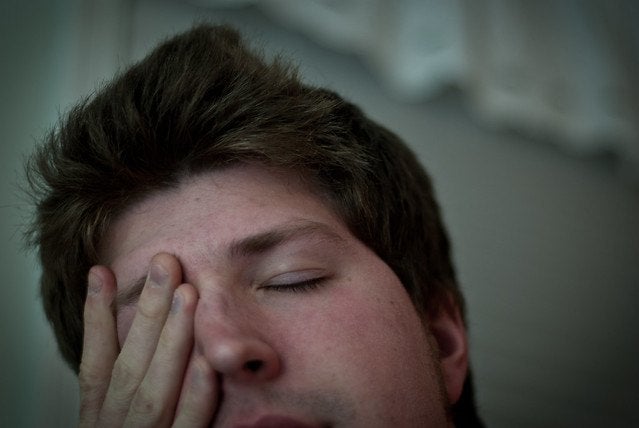Data collected during the Work, Family & Health Network study suggests that every minute counts when it comes to work performance! Just 16 minutes of sleep loss can negatively impact work performance the next day. Learn more in this article written by WFHN researchers. Photo: William Brawley on Flickr
Long-term effects on sleep of older natural disaster victims
Ichiro Kawachi, MD, PhD, and Orfeu Buxton, PhD, are authors on a study that evaluated the sleep of those aged 65 and older who were impacted by the 2011 Great East Japan Earthquake and Tsunami. Two and a half years after the event, those who experienced material loss, such as financial and home, were still at greater risk of sleep problems.
Two WFHN studies reinforce cyclical effect of getting enough, high quality sleep
Two studies by WFHN researchers help to illustrate the reciprocal relationship between sleep and the following day’s perceived stress levels, and vice versa, how daytime stressors can impact that night’s sleep. The studies are published in the Journal of Sleep Research and the Annals of Behavioral Medicine.
Youths getting too much screen time face increased exposure to obesity-related risk factors
Harvard Pop Center faculty member Steven Gortmaker, PhD, is co-author on a study that has found that teens who spend 5 hours or more per day behind a screen (e.g., tablet, computer, videogame, smartphone, television) face greater exposure to obesity and/or risk factors for obesity such as increased sugar-sweetened beverage consumption, and inadequate physical activity and sleep.
For midlife women, short and poor quality sleep linked to increased carotid atherosclerosis
Rebecca C. Thurston, PhD, a Harvard RWJF Health & Society Scholar program alumna, is lead author on a paper that has found links between short and poor quality sleep, and carotid atherosclerosis (the buildup of plaque inside the carotid artery wall which reduces blood flow to the brain). The study was adjusted for other cardiovascular risk factors and hot flashes.
Better sleep for employees, especially older workers, with more workplace flexibility & supervisor support
A study (in press in Sleep Health) by the WFHN reveals that those employees (particularly older workers) of an IT company that took part in an intervention study evaluating the effects of increased workplace flexibility and supervisor support experienced better duration and quality of sleep, as measured with wrist actigraphy.
Work demands that create conflict in our personal lives found to impact sleep
A novel study published in the journal Sleep by the Work, Family & Health Network has found that when work demands conflict with our personal lives and create stress, the duration, quality and regularity of our sleep may be negatively impacted.
A call for interventions targeting childhood nutrition, exercise & sleep to lower rate of non-communicable diseases
Harvard Pop Center faculty member Michelle A. Williams is an author on a peer-reviewed editorial published on Cureus that calls for an increased focus on prevention science to combat the increase in non-communicable diseases. Specifically, the researchers suggest targeting three key areas of lifestyle behaviors during childhood – physical activity, nutrition and sleep – through multi-level, public health programs.
Why does the sound of water help people sleep?
Harvard Pop Center faculty member Orfeu Buxton explains why some sounds help us stay asleep, while other sounds disturb it in this livescience.com piece.
Orfeu Buxton on role of body’s circadian rhythm in link found between staying up late & increased risk of diabetes
Harvard Pop Center faculty member Orfeu Buxton, PhD, comments on a study that found that people who go to bed late are at increased risk of developing diabetes, even if they sleep in late in the morning, in this VOA article.
